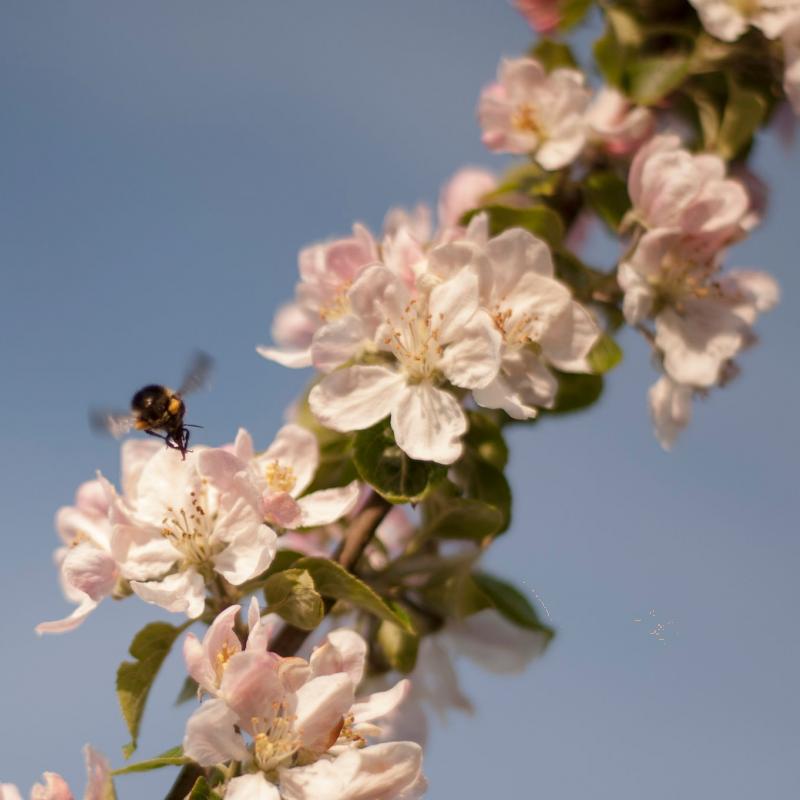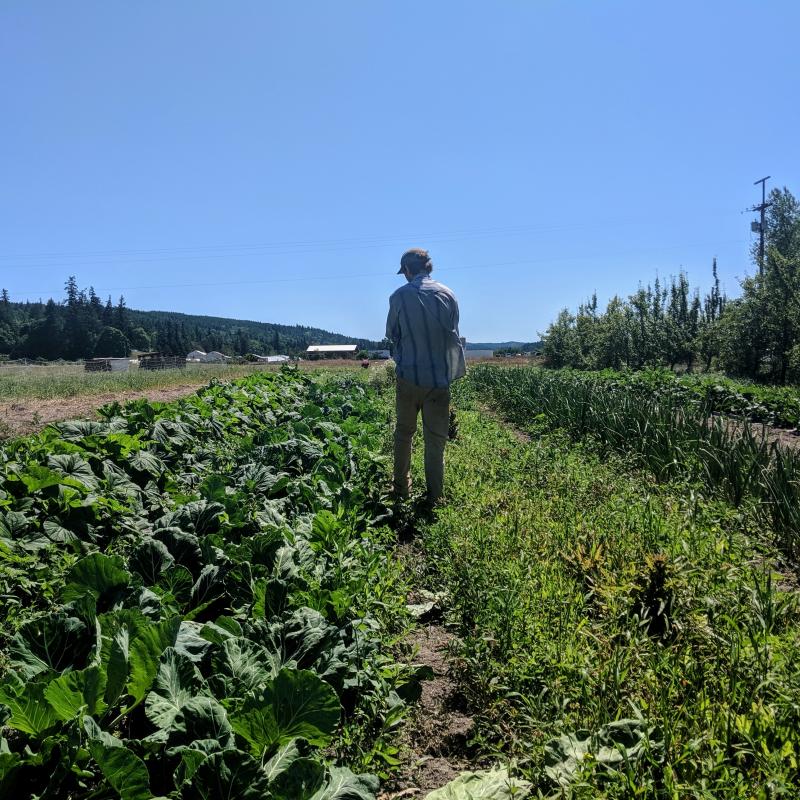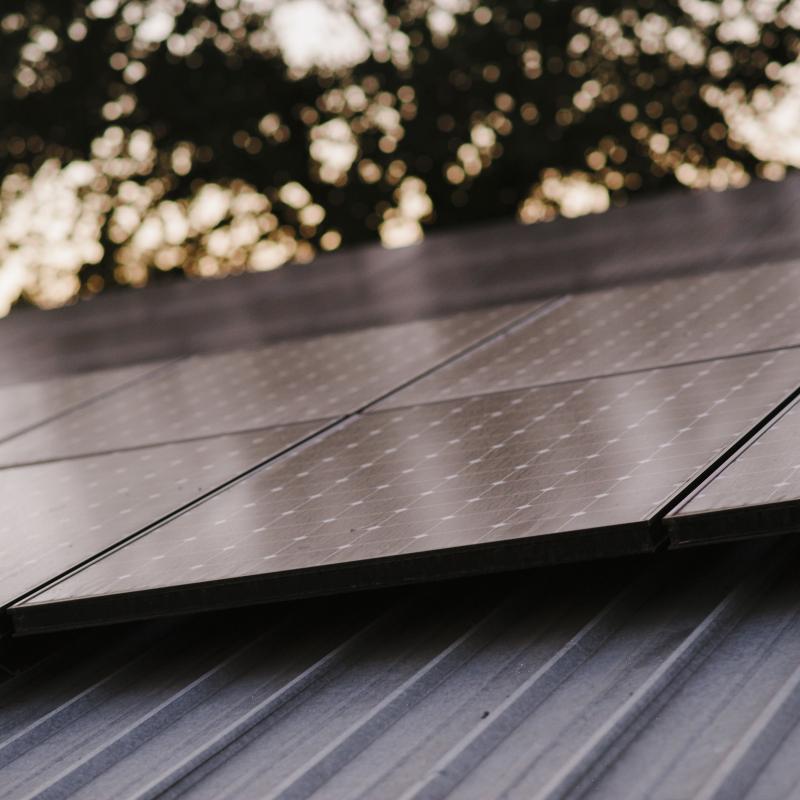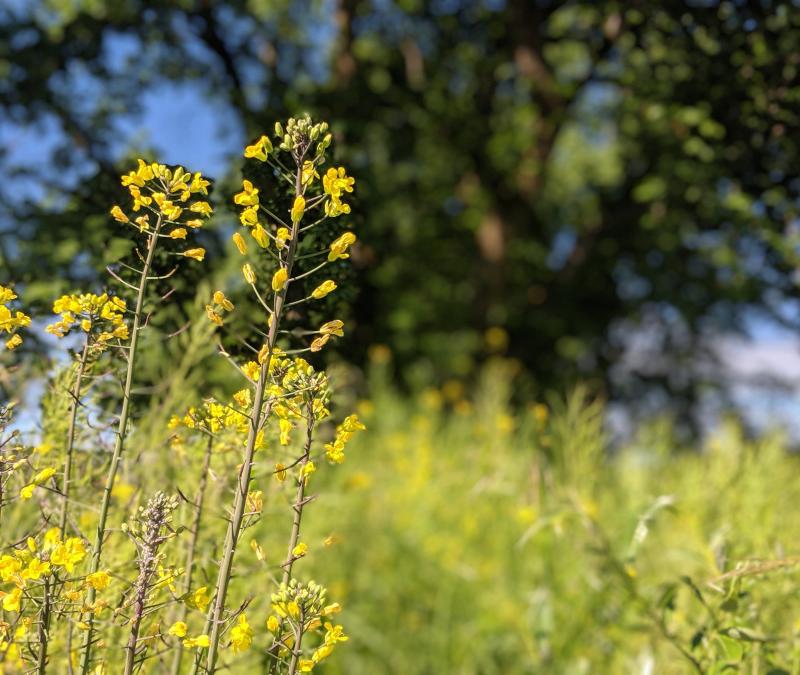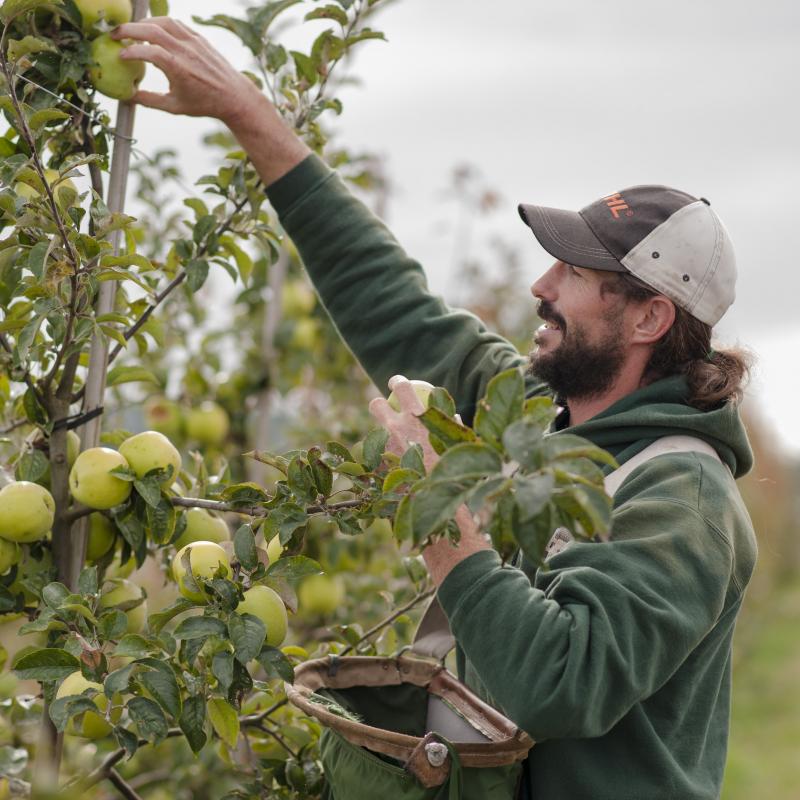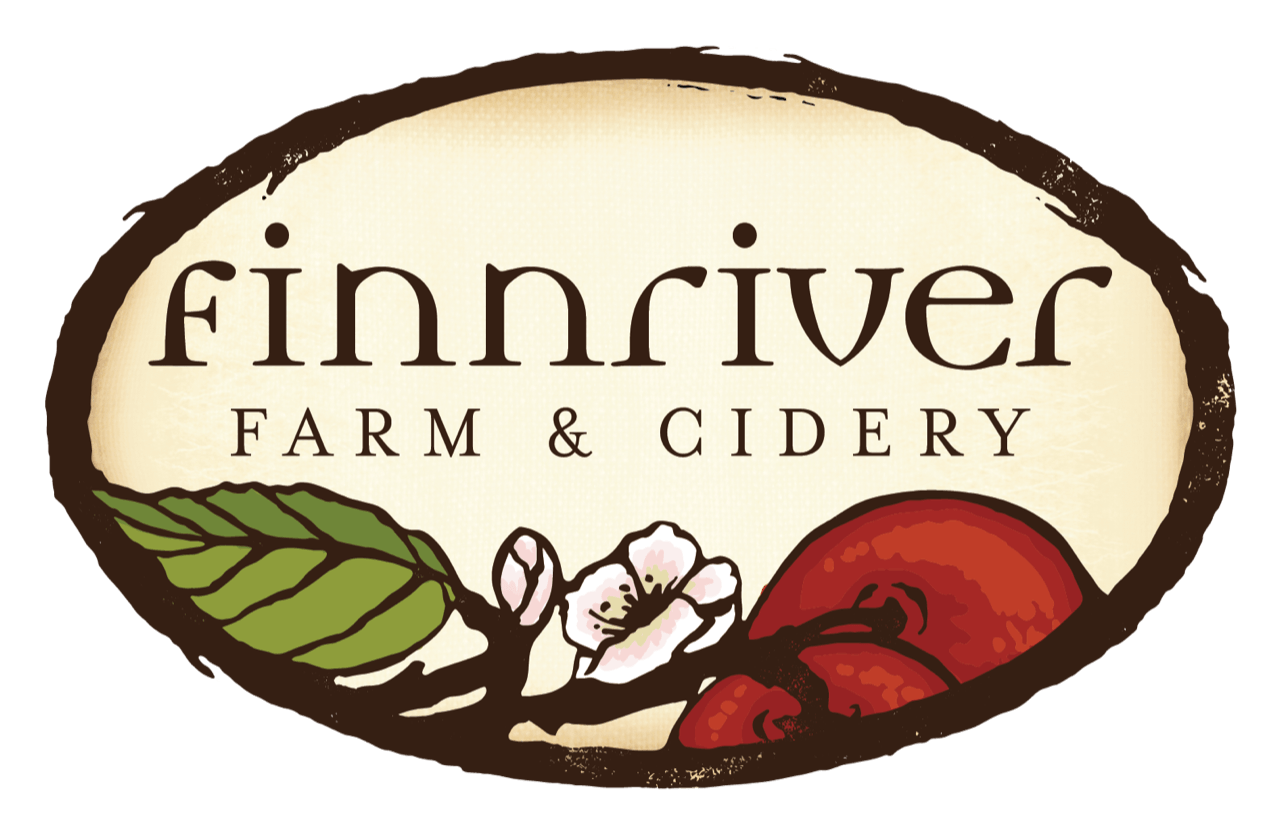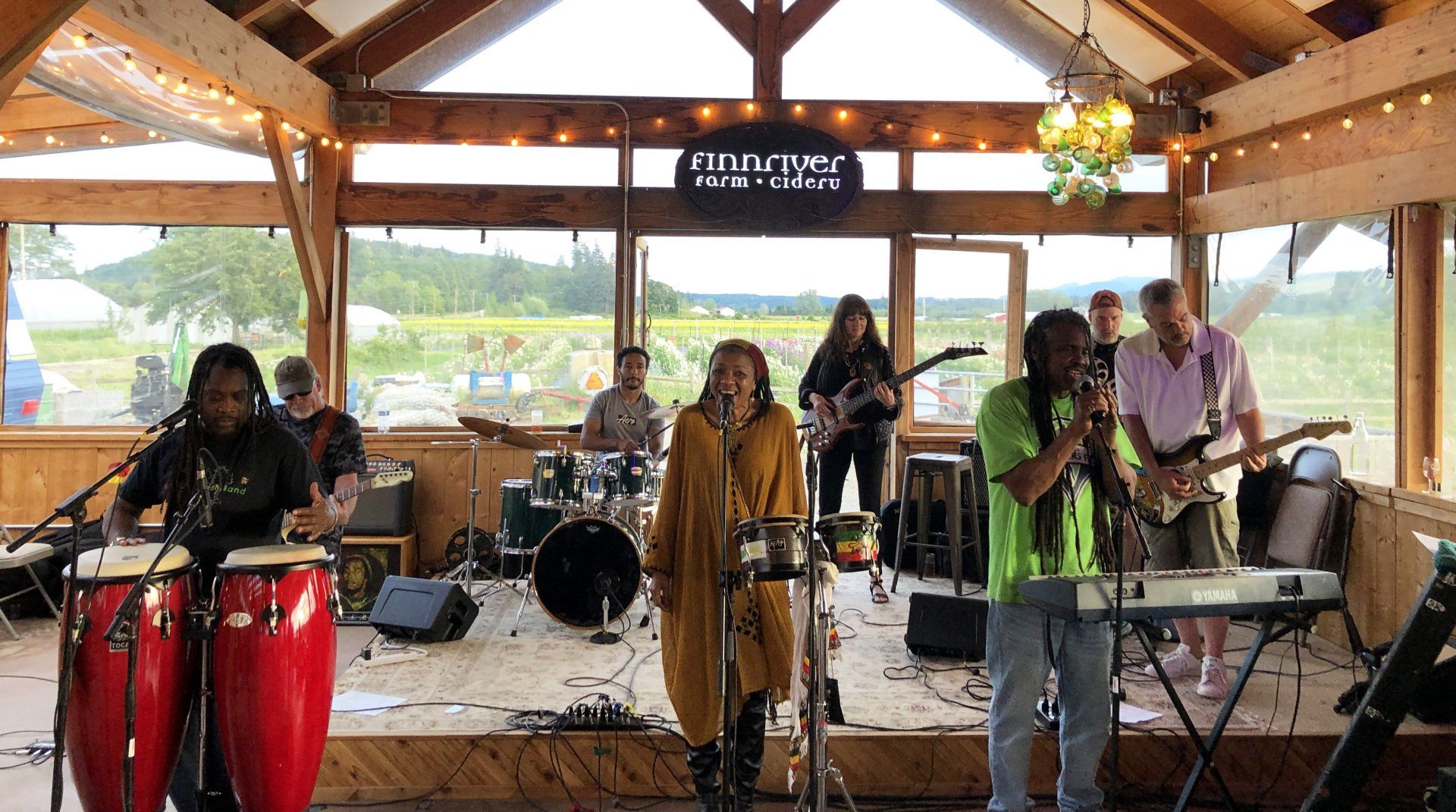When you sit down to eat, or take a drink, how often do you ask yourself, “Who grew this?” Or “What is the quality of life of the person who picked this fruit?” “What kind of conditions do they work in? Is their workplace safe?”
Sometimes, these questions can be easily answered. At Finnriver, where we often source from our own farm and the farms of our neighbors, the answer to “Who grew this?” is often the first name of someone in the community. “Oh, Rachael made that goat cheese on her farm and dropped it off this afternoon.” Or “Brian harvested those mushrooms with his sons this weekend in the forest by his home.” In the rural economy of the Olympic Peninsula where there is a thriving market for small-scale agricultural businesses and entrepreneurs, the answer to “Who grew this food?” often seems quite simple, idyllic even. Yet, most often, to know your farmer is a privilege - it comes hand in hand with the ability to access (and afford) locally grown and produced food.
No market, however, is an island, even one with a thriving small-scale local economy. In the age of globalization, sourcing is never simple, especially when we truly consider the human cost of production. Even on small local farms, we can’t know who made all of the tools we use to till the earth, or processed the lumber that made the boxes we pack our produce in, or created the glass bottles we put our cider in. Most often, many, many hands have touched every tool, every object, every piece of food we eat, and usually, they are hands we don’t know, whose daily lives we can’t imagine - and often don’t stop to consider.
At Finnriver, we deeply value asking these questions, even if they are questions that aren’t easily answered, or when the answers lead to more questions. When you ask us, “Who grew the apples that made your cider?” we would answer that a select percentage of our cider-making apples are grown on the land at our organic orchard in Chimacum, Washington, where we also ferment our ciders, but that Finnriver relies heavily upon organic dessert apples grown, harvested and processed in Eastern Washington in the Yakima Valley.
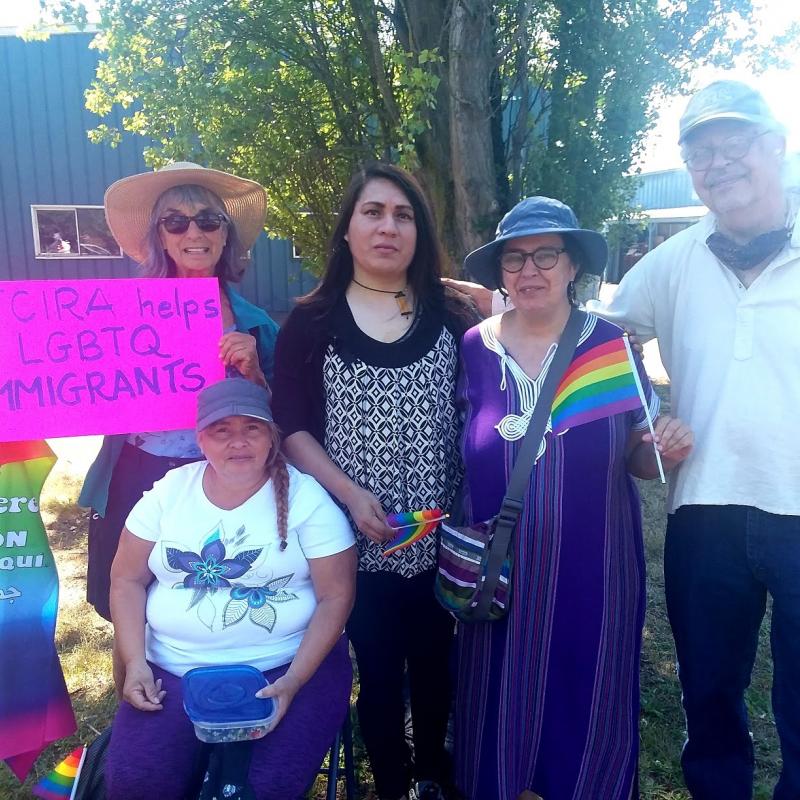
If you were to ask us, “What is the quality of life of the person who picked this fruit?” “What kind of conditions do they work in? Is their workplace safe?” the answers to those questions become more complicated. Apple harvesting in Eastern Washington is done by hand, primarily by immigrant and H-2A visa workers (see note 1). Labor conditions for migrant farmworkers in the US, many of whom are undocumented, are notoriously fraught with problems. Immigrants, especially undocumented immigrants, are particularly vulnerable in workplaces, where “job security” often comes hand-in-hand with working in substandard or hazardous conditions for low wages. The COVID pandemic made clear the essential nature of farmworkers, who kept working and kept our country running while much else was locked down, but who are still treated as though they are expendable. In the summer of 2020, workers went on strike in Yakima Valley apple packing houses to protest the lack of personal protective equipment and safety measures in their workplaces. Not surprisingly, Latino communities were also some of the hardest hit by the pandemic, “The Latino population in Washington state is just 13 percent of the population, and this group of people accounts for more than 40 percent of COVID-19 cases. By contrast, white residents make up 68 percent of the population, but account for only 39 percent of confirmed COVID-19 cases” (see note 2). To learn more about the challenges to farmworkers in Washington State, especially throughout the COVID pandemic, please see this short 6-minute film by Crosscut, "Nosotros somos esenciales" ("We are essential").
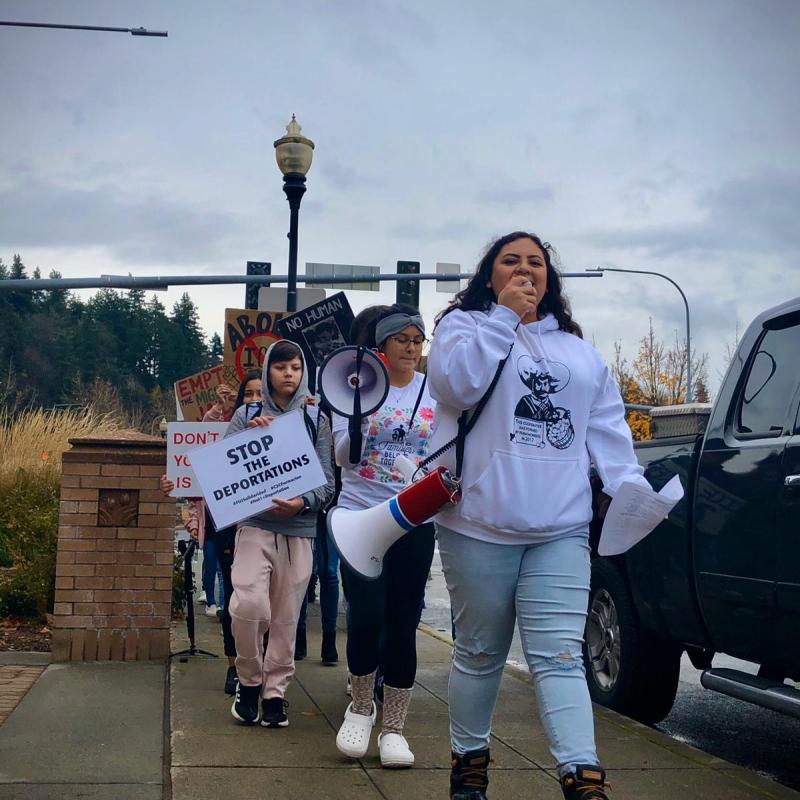
As a small business and a producer of cider, we don’t want to hide from these often harsh realities that underlie agricultural industries - we want to face them with curiosity, concern and compassion. We want to find ways to collaborate with non-profit organizations, activists and labor unions that are working on the ground to improve these conditions. One of the first steps we took to educate ourselves and connect with the groups doing this crucial on-the-ground work was in September 2020, where we hosted a public webinar on agricultural labor in the apple and pear industries in Washington State as a part of Washington Cider Week. Finnriver had the privilege of speaking with and learning from community leaders from Community to Community Development and Familias Unidas por la Justicia. Please click here to watch a recording of this important conversation.
"For the most part workers don't ever see where their apples go. Everything seems to go abroad, or anywhere other than the local market. So workers never get to see themselves as connected to the fruit that they are producing and laboring for. When workers can see their labor is valued and treated with care, it's beautiful." - Edgar Franks, Political and Campaign Director, Familias Unidas por la Justicia
We decided to re-release our classic Pear Cider with a new, bilingual label as Pera de Campesinos (in English, ‘Farmworker Pear’) to honor the often invisibilized and underappreciated lives and work of the farmworkers who picked, packed and processed the fruit that made this cider possible. As part of Finnriver’s Social Justice Cider Project, $2 from each bottle of Pera de Campesinos sold will go to a community organization that is already working hard in the fight for a more equitable food system that ensures that workers rights are honored. Our first two organizations are Community to Community Development in Bellingham, Washington, a women-led grassroots organization dedicated to food sovereignty and immigrant rights, and Jefferson County Immigrant Rights Advocates in Port Townsend, Washington, which supports the rights of immigrants and their families, giving priority to those who live or work on the Olympic Peninsula and immigrant detainees within Washington State. We are proud to partner with both of these organizations! Please learn more about these organizations and their amazing works at their websites: Community to Community, http://www.foodjustice.org/ and Jefferson County Immigrant Rights Advocates, https://www.jcira.org/. Label art was created by local artist Sara Ybarra Lopez, whose work you can learn more about at https://www.carapacearts.com/.
We also want to recognize La Familia Cider Company in Salem, Oregon, which was founded in 2017 by the Gonzalez family, first-generation Mexican immigrants. La Familia Cider Company does powerful work by donating a percentage of their profits to local nonprofits that help families with the legal immigration process, helping keep families together. We are inspired by their work and are excited to be in conversation with them about ways we can collaborate.
Our distribution and vendor partners have helped make it possible for us to share this cider and its message across the region. Cru Selections has been our distributor in Washington State since 2013. They are like-minded individuals who are excited to work with us to share this cider and contribute the conversation around labor practices and awareness. We have also partnered with PCC Community Markets, the nation’s largest community-owned food market. PCC has been a longtime Finnriver supporter and is deeply committed to fair labor practices - to learn more, click here.
We recognize that this is just the beginning. As a business, we will continue to seek out and grow our relationships with labor and activist organizations and the farmworkers themselves to make sure we are releasing a product that is rooted in a commitment to ethical labor practices and produced with love and respect on every step of its journey. We welcome you to join us in learning and helping to make positive change. We will release more updates and educational materials as we continue to learn more and do more.
The Social Justice Cider Project is an effort to shift energy towards greater equity and justice in our society by raising awareness of BIPOC (Black, Indigenous, People of Color) projects working for positive transformations in our region, and by sharing resources with the groups doing this vital work. Learn more here.
Notes
1. H-2A visas are temporary farm worker visas, where foreign nationals are able to come to the United States to work for a set period of time (i.e. the apple harvesting season) for a specific employer, but must return to their home country at the end of their contract.
2. Wing, J. (2020, September 24). 'Farmworkers can't pick apples Through zoom.' EXPERTS explore why Latinos hit hard BY COVID. Retrieved May 12, 2021, from https://www.knkx.org/post/farmworkers-can-t-pick-apples-through-zoom-experts-explore-why-latinos-hit-hard-covid
